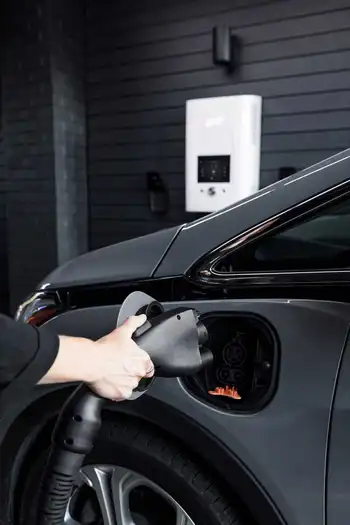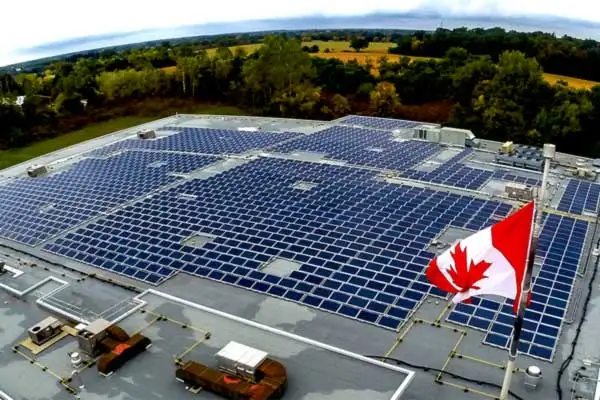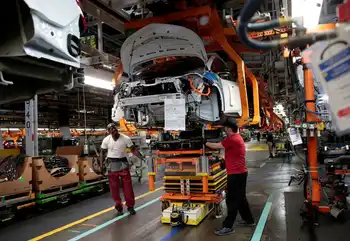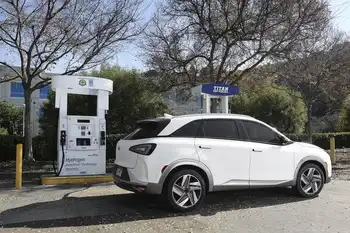Ottawa to release promised EV sales regulations

Substation Relay Protection Training
Our customized live online or in‑person group training can be delivered to your staff at your location.

- Live Online
- 12 hours Instructor-led
- Group Training Available
Canada ZEV Availability Standard sets EV sales targets and zero-emission mandates, using compliance credits, early credits, and charging infrastructure investments under CEPA to accelerate affordable ZEV supply and meet 2035 net-zero goals.
Key Points
A federal ZEV policy setting 2026-2035 sales targets, using tradable credits and infrastructure incentives under CEPA.
✅ Applies to automakers; compliance via tradable ZEV credits under CEPA.
✅ Targets: 20% by 2026, 60% by 2030, 100% by 2035.
✅ Early credits up to 10% for 2026; charging investments earn credits.
Canadian Automobile manufacturers are on the brink of significant changes as Ottawa prepares to introduce its long-awaited electric vehicle regulations. A reliable source within the government says final regulations are aimed at ensuring that all new passenger vehicles sold in Canada by 2035 are zero-emission vehicles, a goal some critics question through analyses of the 2035 EV mandate in Canada.
These regulations, known as the Electric Vehicle Availability Standard, are designed to encourage automakers to produce more affordable zero-emission vehicles to meet the increasing demand. One of the key concerns for Canada is the potential dominance of zero-emission vehicle supply by other countries, particularly the United States, where several states have already implemented sales targets for such vehicles, and new EPA emission limits are expected to boost EV sales nationwide as well.
It's important to note that these regulations will apply primarily to automakers, rather than dealerships. Under this legislation, manufacturers will be required to accumulate sufficient credits to demonstrate their compliance with the established targets.
Automakers will be able to earn credits based on their sales of low- and no-emissions vehicles. The number of credits earned will depend on how close these vehicles come to meeting a zero-emissions standard. Additionally, manufacturers could earn early credits, amounting to a maximum of 10 percent of their total compliance requirements for 2026, by introducing more electric vehicles to the market ahead of schedule, even amid recent EV shortages and wait times reported across Canada.
Automakers can also increase their credit balance by contributing to the development of electric vehicle charging infrastructure, recognizing that fossil fuels still powered part of Canada's grid in 2019 and that charging availability remains a key enabler. In cases where companies exceed or fall short of their compliance targets, they will have the option to buy or sell credits to other manufacturers or use previously accumulated credits.
Further details regarding these regulations, which will be enacted under the Canadian Environmental Protection Act, are set to be unveiled soon and will intersect with provincial approaches such as Quebec's, where experts have questioned the push for EV dominance as policies evolve.
These regulations will become effective starting with the model year 2026, and sales targets will progressively rise each year until 2035. The federal government's ambitious EV goals are to have 20 percent of all vehicles sold in Canada be zero-emission vehicles by 2026, with that figure increasing to 60 percent by 2030 and reaching 100 percent by 2035.
According to a government analysis conducted in 2022, the anticipated total cost to consumers for zero-emission vehicles and chargers over 25 years is estimated at $24.5 billion, though cost remains a primary barrier for many Canadians considering an EV. However, it is projected that Canadians will save approximately $33.9 billion in net energy costs over the same period. Please note that these estimates are part of a draft and may be subject to change upon the government's release of its final analysis.
In terms of environmental impact, these regulations are expected to prevent the release of an estimated 430 million tonnes of greenhouse gas emissions, according to regulatory analysis. Environmental Defence, a Canadian environmental think-tank, has estimated that the policy would also result in a substantial reduction in gasoline consumption, equivalent to filling approximately 73,000 Olympic-sized swimming pools with gasoline.
Nate Wallace, the program manager for clean transportation at Environmental Defence, emphasized the significance of these regulations, stating, "2035 really needs to be the last year that we are selling gasoline cars in Canada brand new if we're going to have any chance of actually, by 2050, reaching net-zero carbon emissions."











